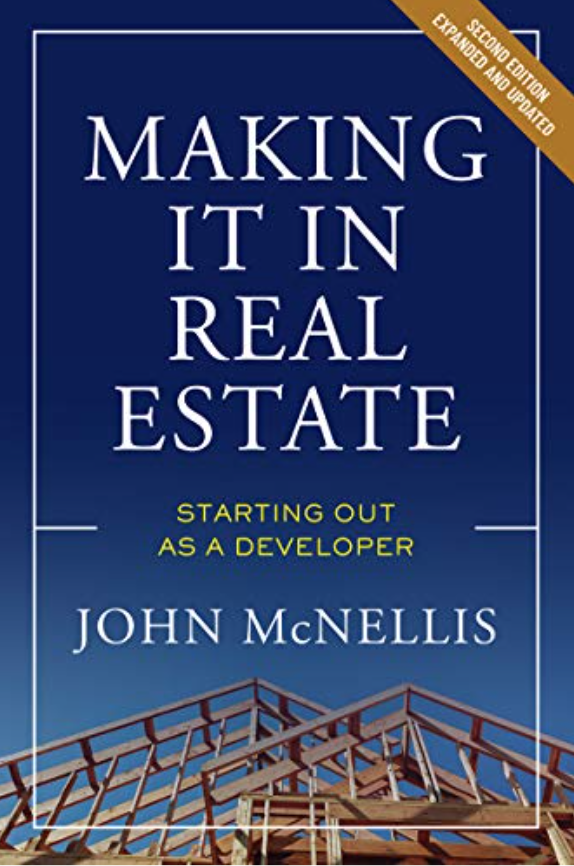I have been a real estate developer and landlord since the early 80’s. Even then, Donald Trump had a reputation within our industry as an empty suit, a blowhard with a knack for front-page publicity. Even then, he was giving us a black eye.
Already the second-most reviled occupation in the country (losing by a nose to drug lord), my profession has been in a year-long tailspin. It’s officially under consideration for listing as “critically endangered” by the US Fish & Wildlife Service, tonier business schools are abandoning real estate courses faster than Italian sea captains and dispirited landlords everywhere are rebranding themselves as “accommodation providers.”
All of this thanks to a man who has developed almost nothing—beyond his ego—in twenty years and who, even in his heyday, was an industry joke. On his best day, Trump was to development what Madonna is to singing, a mediocre talent with a genius for self-promotion. Putting aside his losers that didn’t require legal protection, Trump bankrupted six of his projects. To paraphrase Oscar Wilde, to file one Chapter 11 may be regarded as misfortune, to file six looks like incompetence.
Like everyone in commercial real estate, I read “The Art of the Deal.” But we didn’t read his book for inspiration or “how-to” tips—we read it for the same reason drivers slow down for car wrecks. And as with memories of accidents, I can still recall some of my thoughts of nearly thirty years ago. Knowing little about him but his unquenchable need for publicity, I couldn’t believe it when I read how a twenty-something Trump—seemingly from out of nowhere—waltzed into America’s toughest real estate market and pulled off the Hyatt Regency deal. When I expressed my disbelief to a New York developer, he barked, “Trump’s father owns 10,000 apartment units in Queens. Without his old man’s money, he’d be shingling duplexes in Jersey.” That his autobiography failed to credit some of his early success to his father only cemented Trump’s reputation as a jerk within real estate circles. But flushing out the truth second-hand—learning how much he owed to Fred Trump—did make those of us who actually started at the bottom rung feel better about the puny deals we were then doing.
I also recall thinking—almost mid-page—that I would never be truly wealthy when I read how far Trump was willing to go to make a buck. His tale about buying a posh apartment house on the Upper West Side, a building occupied by prosperous tenants that he had to evict to make his next small fortune, was breathtaking in both its audacity and amorality. Frustrated by his inability to buy—or bully—the lawyers and investment bankers out of his building, Trump went to the city of New York and offered to house the chronically homeless in his handful of already empty units, calculating that unwashed street alcoholics would act as human cockroaches and empty out his building. Only the city’s refusal to go along with his scheme kept him from misusing Manhattan’s destitute.
America, you should know that the commercial real estate world has been ashamed of Donald Trump for years. He has continually tarnished our image with his braggadocio, his lies and his fraud. When Trump was technically bankrupt in the early nineties, when all it would have taken to wipe him out was for one of his lenders to reject his personal bail-out plan, we rooted against him. At industry functions, we hoped aloud his bankers would take him down, that they would rid real estate of its biggest embarrassment. To our lasting regret, his bankers flinched.
In a private talk a few weeks ago, Michael Bloomberg summed up Trump’s business ethics: “No one has ever done business with Donald Trump and walked away with a hundred cents on the dollar. No one will do business with him today, not the banks, not his former partners and not the construction industry.”
Donald Trump is no more representative of developers and landlords across the country than Joseph Stalin was of seminarians or Mao Zedong of school teachers. The overwhelming majority of real estate developers are reputable men and women who have the best interests of their communities at heart, who honor their word and for whom a signed contract is not a stepping-off point for further chiseling. They would never even dream of stiffing a small contractor or of converting the courts into their own personal cudgels.
If only Trump had been a pediatrician or a florist. Or any other well-loved profession that could one day—after some years in the wilderness—recover from its association with arguably the worst man in America. If only the word Trumped had not devolved into a synonym for a six-letter word that rhymes with lucked.


